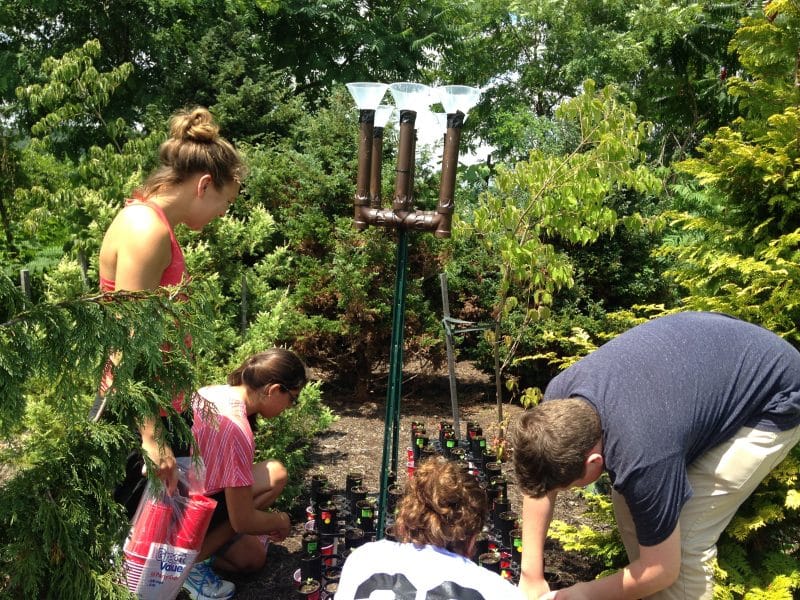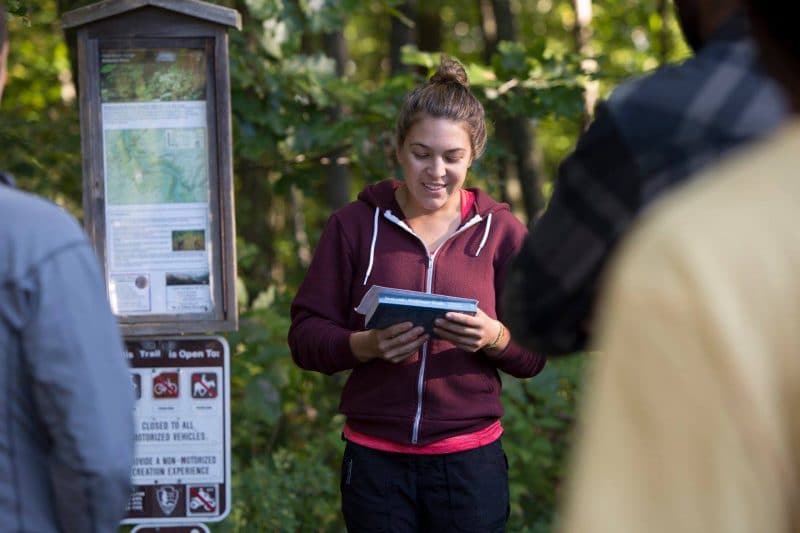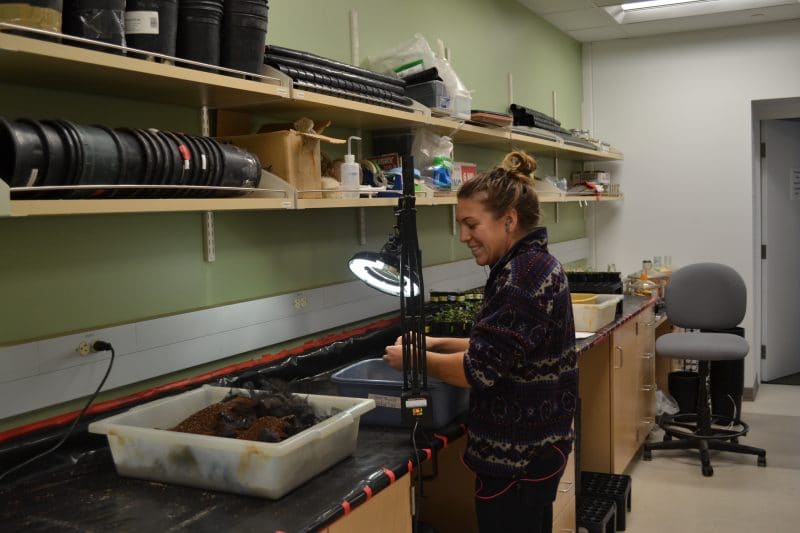
The National Science Foundation (NSF) Graduate Research Fellowship supports outstanding graduate students in science, technology, engineering, or mathematics pursuing a research-based Ph.D. or master’s degree. The program is designed to allow students to focus primarily on their research and provides a generous stipend for three years in addition to tuition for a graduate program at any accredited U.S. university. Fellows have opportunities for international research and professional development and benefit from a large network of alumni. Fellows become experts in their field who will contribute significantly to research, teaching, and innovation in science and engineering.
We talked to Nikki Forrester, a Ph.D. student in evolutionary ecology at the University of Pittsburgh, to learn more about the program and get some application tips.
1. What inspired you to apply for the NSF Graduate Research Fellowship?
When I began studying ecology and evolutionary biology as an undergraduate student at The College of William and Mary, I was encouraged to apply for the NSF Graduate Research Fellowship Program (GRFP). The GRFP is a prestigious fellowship that provides exceptional support and opportunities for Ph.D. students. Not only does it award fellows with three to five years of financial support, but it also allows fellows to focus entirely on their doctoral research. When I decided to pursue a Ph.D., I wanted to explore novel questions and develop an independent research program, and the GRFP allowed me to do just that. During the fellowship, I devised and tested hypotheses about plant interactions with beneficial bacteria, which are important components of natural and agricultural ecosystems.

2. What are the benefits of the fellowship?
The GRFP has a wonderful support system that keeps current and previous fellows in the loop about numerous funding and fellowship opportunities. It covers all tuition expenses and provides a very comfortable stipend. This funding means you have an immense amount of flexibility and independence as a Ph.D. student because you don’t have to rely on teaching or research assistantships for funding.
As a fellow based at the University of Pittsburgh, I had the opportunity to spend a semester working in a lab at the University of California, Riverside. While there, I learned essential techniques for my doctoral research, conducted an experiment testing how plants respond to different types of bacteria, and developed collaborations that continue today. The fellowship also allowed me to pursue career interests beyond academic research. Over the past five years, I have pioneered various science communication and outreach efforts. These experiences laid the foundation for my career as a freelance science writer and wouldn’t have been possible without the GRFP.

3. What tips would you give others applying to the NSF Graduate Research Fellowship?
The two main elements of the GRFP application are a research proposal and personal statement. The research proposal addresses the work you plan on doing during your Ph.D. and the personal statement focuses on your background, research experience, and science outreach efforts.
I think a strong research proposal should have clear questions, a solid experimental approach, and broad implications for how your research contributes to the scientific community and society as a whole. I’ve seen a wide variety of successful personal statements, and I think the most important thing is to be as genuine as possible. Making a list of all your research experiences and science outreach efforts and then picking out a few that made significant impacts on your approach to science, mentoring, and public outreach can be very helpful.
Nikki Forrester is a Ph.D. candidate studying evolutionary ecology at the University of Pittsburgh. She earned a B.A. in Cultural Anthropology from the College of William and Mary in 2011, and is now a freelance science writer based in Davis, West Virginia.
Interested in applying? Bookmark NSF Graduate Research Fellowship to your ProFellow account.
© Victoria Johnson 2019, all rights reserved.